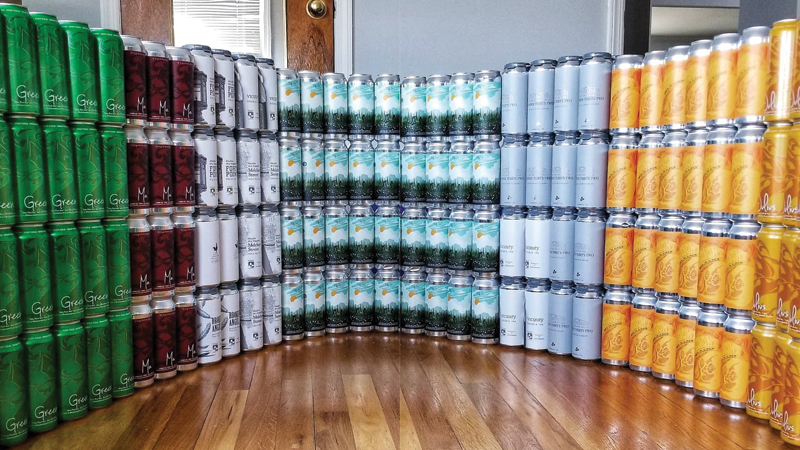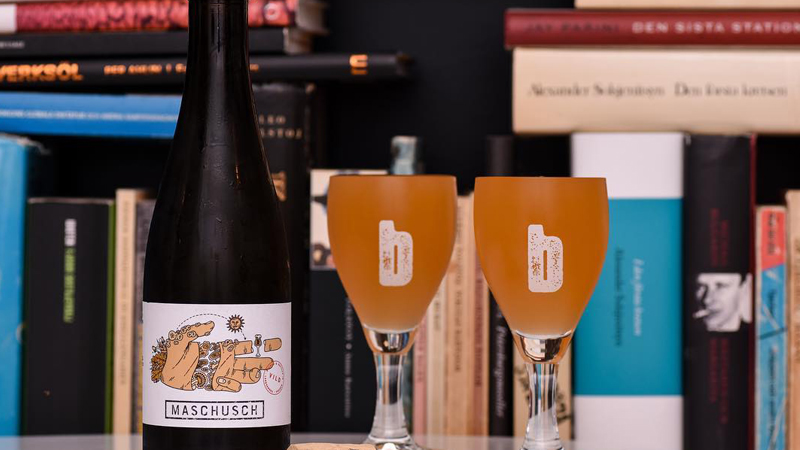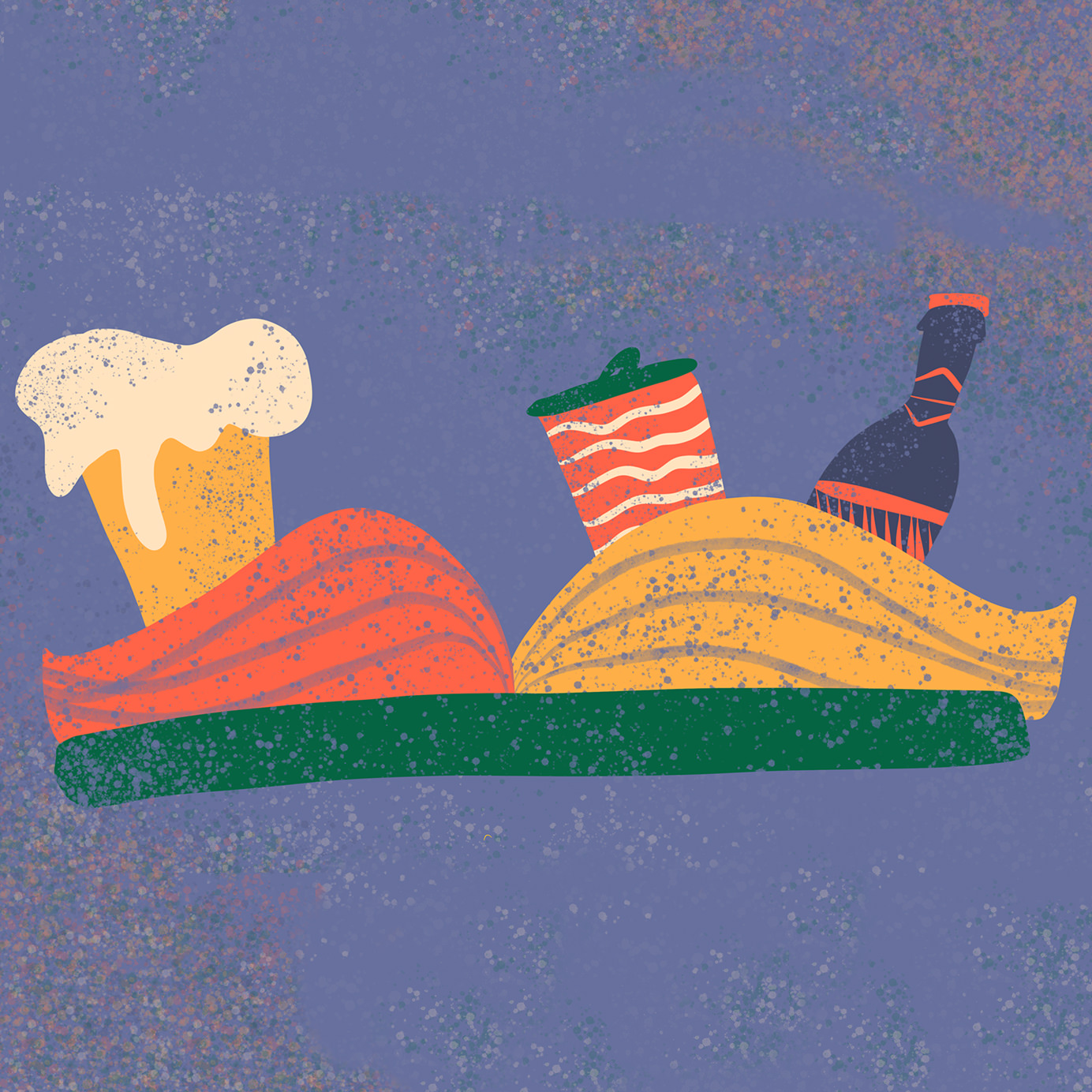Just a decade ago, your average American probably didn’t know what IPA stood for. They certainly didn’t use it in polite conversation, and almost definitely never drank these India Pale Ales. The boom in beer culture in the 2000s, however, has finally spawned a society where craft beer has become ubiquitous, and now most of us can speak somewhat intelligently about it.
Of course, there will always be the beer geeks, the hardest of the hardcore, whose singular obsession with craft beer has spawned a parlance all its own. Go to a Saturday can sale for New England-style IPAs (NEIPA) or an imperial stout bottle share and you’ll hear strange terms being bandied about. Stumble upon these nerds IRL and you’d be forgiven for thinking you’d actually interrupted some cosplayers.
Thus, a need to make an urban dictionary of beer for the next time you encounter a beer geek in the wild. Of course, you’re most likely to find them on the internet, where their communication reaches peak esoterica. There, in the dark annals of the web, an uber-niche subculture of beer fans meets to discuss the most granular topics and, more importantly, swap their limited-edition, hard-won beers.
Don't Miss A Drop
Get the latest in beer, wine, and cocktail culture sent straight to your inbox.Ready to test your knowledge and engage in some cultural anthropology? Here is the latest edition of the craft beer geek dictionary.
Beer wall (also: beer tower): A bizarre thing NEIPA lovers do. After procuring their full allotments of a rare release, they head back to their apartments, neatly stack the cans into a wall of beer, and then photograph it for the express purpose of bragging on Instagram. (see: nice haul!)
BIN: Standing for “buy it now,” this acronym is strictly online jargon unleashed when a beer geek offers a rare beer for sale on a private Facebook group or secret online forum. Typically, the first person to write “BIN” in the comments section of the post is allowed first dibs on actually purchasing the black-market beer.
Cellar: Where beer geeks store the prized beers — usually imperial stouts or sours — that they are “aging.” With low light and cool temperatures no matter the season, a cellar is an optimal place to store aging beer or wine. Of course, today’s beer geek will use the term “cellar” even if they are storing their beers in the bottom of a coat closet, underneath their twin bed, or in their kitchen cupboards, which are bereft of food due to the fact that they spend all their money on pastry stouts.
Collabs: When two or more breweries collaborate to brew a beer. Even though participating breweries are often some of the sexiest names in the business today, the beers they produce are often less than the sum of their reputations (many people believe that’s due to the fact that collaborations are often just an excuse for breweries from different cities to get together and party under the auspices of “business”). Whatever the case, beer geeks are far more likely to covet these offerings.
Crushable: A light, easy-drinking beer that can be drunk in bulk. Nevertheless, many beer geeks enjoy using the term to describe DDH juice that is high-ABV and anything but crushable.
Dank: A flavor note often used by inexperienced, “new money” tasters to describe an IPA, especially one with marijuana-like characteristics due to its hops profile.
DDH: Standing for “double dry-hopped,” this term doesn’t actually tell you anything about a beer (as so often there is no similar release that was single dry-hopped) other than that beer geeks will be lining up on Saturday mornings to buy full allotments of it. There are also triple and even quadruple dry-hopped beers, which, in these cases, are mainly just cheeky designations of hops potency.

Drain pour: A beer so awful that one has no choice but to immediately pour it down the kitchen sink drain instead of drinking it, often while filming the act on their phone. The latter is usually done to brag about having to drain pour a beer that many others covet.
Falling off: Term the all-knowing beer geek uses to describe a beer that has started getting subtly worse due to age. Usage: “You better drink that Julius soon. It starts falling off at 10 days.”
Flocc: Short for flocculation, which refers to how yeast binds together after fermentation. Beers that do not flocc well tend to be hazier.
Freshies: Term for just-released cans of NEIPA, often canned just a few hours previous and, thus, extraordinarily fresh. Most new-money beer geeks will refuse to drink any NEIPA older than a week or two.
Glasswhale: As if collecting supposed rare beer isn’t enough of a hobby, many enthusiasts have moved onto also collecting rare (or “rare”) glassware. These are usually released in concert with juice releases, and are often TeKus. No one ever asks, “Why don’t they just print more of these glasses?”
Graveyard: The empty bottles remaining after a bottle share, usually lined up so as to be photographed for posterity (see: killshot).
Gusher: A beer, typically a sour ale, that immediately gushes out of the bottle once opened, usually making a mess and causing one to lose precious ounces they were already having to split with 10 other people at a bottle share. Gushers often occur due to over-carbonation or even a bacterial infection.
Hazeboys (also: hazebois or hazeboiz): A breed of beer fan, usually in his early 20s, who strictly buys, trades, and drinks NEIPAs (see also: juice, hazies).
Haze for days: An expression that you would think is said ironically, though usually not so, when a hazeboy is admiring a particularly opaque NEIPA. Often expressed as a hashtag online, #hazefordays.
Hazies: Slang for NEIPAs, due to their cloudy appearance.
Iceman pour (also: boss pour): A dumb way to pour a beer that ascended to widespread beer-geek popularity in 2015. The beer drinker literally fills his glass all the way to the absolute brim leaving no room, not even for head foam. This is mainly done to improve Instagram images. It thankfully seems to be falling out of popularity, as even its inventor, @iceman13, is rarely seen doing them these days.
ISO/FT: Standing for “In search of”/“For trade,” these abbreviations are strictly online patois used when a beer geek is proposing a trade. Usage: “ISO: Monkish juice/FT: Other Half freshies.”
Juice: More slang for NEIPAs, which so often resemble fresh-squeezed OJ.
Juice Wolves: A lampooning term coined by Industrial Arts Brewing to describe hazeboys and juice-seekers. The Hudson Valley brewery even created a garish T-shirt for the term.
Juicy: The most common (and lazy) flavor descriptor for NEIPAs, which utilize hops that produce a citrusy character and brewing methods (such as adding oats) that create a juice-like haziness and soft mouthfeel.
Killshot: Photograph or video of the beer share graveyard, posted on Instagram, of course.
Limits (also: allotments): The maximum amount of beers one can purchase for any given release, usually capped at a case or two of 24, 16-ounce cans. Thus, the need for beer geeks to bring mules to increase their haul. Usage: “You gonna max out your limits?” “I won’t be able to eat next week if I do … but of course.”
The line: The current queue at any number of NEIPA-producing breweries where, on most Saturdays, hazeboys arrive early to be afforded the opportunity to max out their limits on cases of juice. The term is typically only used in online discussion by internet posters wondering if it’s worth their efforts to head to the brewery for the release. Usage: “How’s the line looking right now?” “At 8 a.m. it was all the way to Garnet (street) so you better hurry and get here.”
Line life: Usually written in hashtag form (#linelife) to tack onto an Instagram post depicting you and fellow beer geeks having a 7:00 a.m. share on a Saturday morning while waiting for a brewery to open at noon and sell you some juice.
Mixed ferm: De rigueur sour beers that have been fermented with a mix of standard brewer’s yeast (Saccharomyces) as well as a “wild” yeast or bacteria like Brettanomyces, Lactobacillus, and/or Pediococcus.
Mule: A person (often a romantic partner, family member, or friend you’ve bribed) whom beer geeks force to stand in line with them in order to increase their allotments of a limited-release beer. Inspired by the term “drug mule.”
Neckbeards: The most derided of beer geek, so named because of both their lack of understanding of any sort of beer history prior to the recent NEIPA influx, and their lack of ability to grow facial hair above their jowls.
New money: A derisive term for a beer geek only aware of the whales of the moment, and not some of the major players from a prior era. Usage: “He’s so new money he’s never even heard of Kate the Great.”

Nice haul!: Ubiquitous Instagram comment after a beer geek posts his beer wall.
In-person only: Written online while proposing a trade. While most beer trades are conducted via strangers across the country using UPS or FedEx, a small subset of beer geeks are actually able to hold conversations with other people, and thus prefer to conduct their trades strictly in-person.
Pastry stout: These uniquely modern imperial stouts are so overloaded with sweet ingredients (ranging from cocoa nibs and vanilla beans to toasted coconut, maple syrup, and even candy bars), you’d be forgiven for thinking you were ordering a dessert and not an adult beverage. Coined by popular online beer personality Dontdrinkbeer.
Porch bomb: A surprisingly stuffed box of beer that just arrived at your house, often via trade. Usage: “Juiceboy69 just dropped a porchbomb of Veil freshies on me!”
Proper glassware: Using a branded glass similar to the beer you are currently drinking. As breweries have started releasing new glassware for literally every single new beer they make, it has become harder and harder to have the most proper glassware each time one drinks.
Proxy: A person sent to pick up your rare beer at a brewery nowhere close to where you live. In many cases, rare beer is sold online (often via sites like Brown Paper Tickets), with the few hundred limited bottles going to the quickest purchasing fingers. The major problem, however, is that these beers are only able to be sold and/or picked up by locals because it is often illegal to sell beer across state lines and certainly to ship it. Thus, a need to employ a friendly stranger who can pick up your beer and then illegally mail it to you. These proxies are usually compensated with a portion of the haul or cold hard cash. Usage: “Thought I was screwed on the Mornin’ Delight release, but luckily I found a proxy who lives near the brewery.”
Release: A new beer or the day a new beer comes out, spoken of with grave importance. Usage: “Oh no, I’m getting married on Saturday; I won’t be able to make the release. ISO!”
Share (also: bottle share): When beer geeks pretend they are friends for the express purpose of getting together and sharing a few meager ounces of their whales so they can tick a few meager ounces of another geek’s whales.
Shelf turd: A less-than-rare beer that is usually available on the shelves at a store any time you visit. Often used to denigrate a once-coveted beer that no longer sells out immediately. Usage: “I can’t believe Sucaba has become a shelf turd. It’s been at my Whole Foods for three weeks!”
TeKu: Introduced by the German company Rastal in 2006, the angular, lipped, stemmed glass is widely popular among beer geeks, especially when adorned by silkscreened graphics and released in concert with a rare “juice” release, often rendering it a “glasswhale.” The odd name is a portmanteau of the nicknames of its designers, Matterino “Teo” Musso and “Kuaska” Lorenzo Dabove.
Ticker: A beer geek with an obsession for trying every hyped beer ever released, even if he only drinks a mere ounce of it in most cases. A tick is the act of trying the beer. Usage: “There were only a few drops of Marshmallow Handjee left when I arrived at the share, but I still got the tick.”
Whale: A rare beer one dreams of landing some day, so dubbed in honor of Ahab and his maniacal search for Moby Dick. Ultra-rare beers are sometimes called “white whales,” with geeks frequently arguing online over what is truly a whale and what isn’t. The term has slowly begun to lose favor as the monoculture of canned NEIPAs has taken over.
